The Smoky Mountain area is Tennessee's most popular tourist destination for a reason! You'll discover mountain adventures, family entertainment, and unforgettable sights during your weekend trip to Gatlinburg.
Because there are so many things to do in Gatlinburg, you won’t be able to see everything in just one weekend, but you can make sure to hit some of the highlights with this carefully planned itinerary. We’ve included three days' worth of activities for long weekend trips, but you can use these ideas as inspiration for a shorter weekend stay as well.
Your first day in Gatlinburg will be all about experiencing local flavors and attractions. You’ll start your day with a hearty mountain breakfast and end your evening with authentic Tennessee moonshine. In between, you’ll find several local activities to help you get a feel for what the region has to offer.
Start your first morning in Gatlinburg with a hearty mountain breakfast at Crockett's Breakfast Camp. This rustic restaurant serves generous portions of Appalachian-inspired breakfast dishes that celebrate the heritage of the Smoky Mountains. Make sure to get there early to avoid the wait for their famous cinnamon rolls!
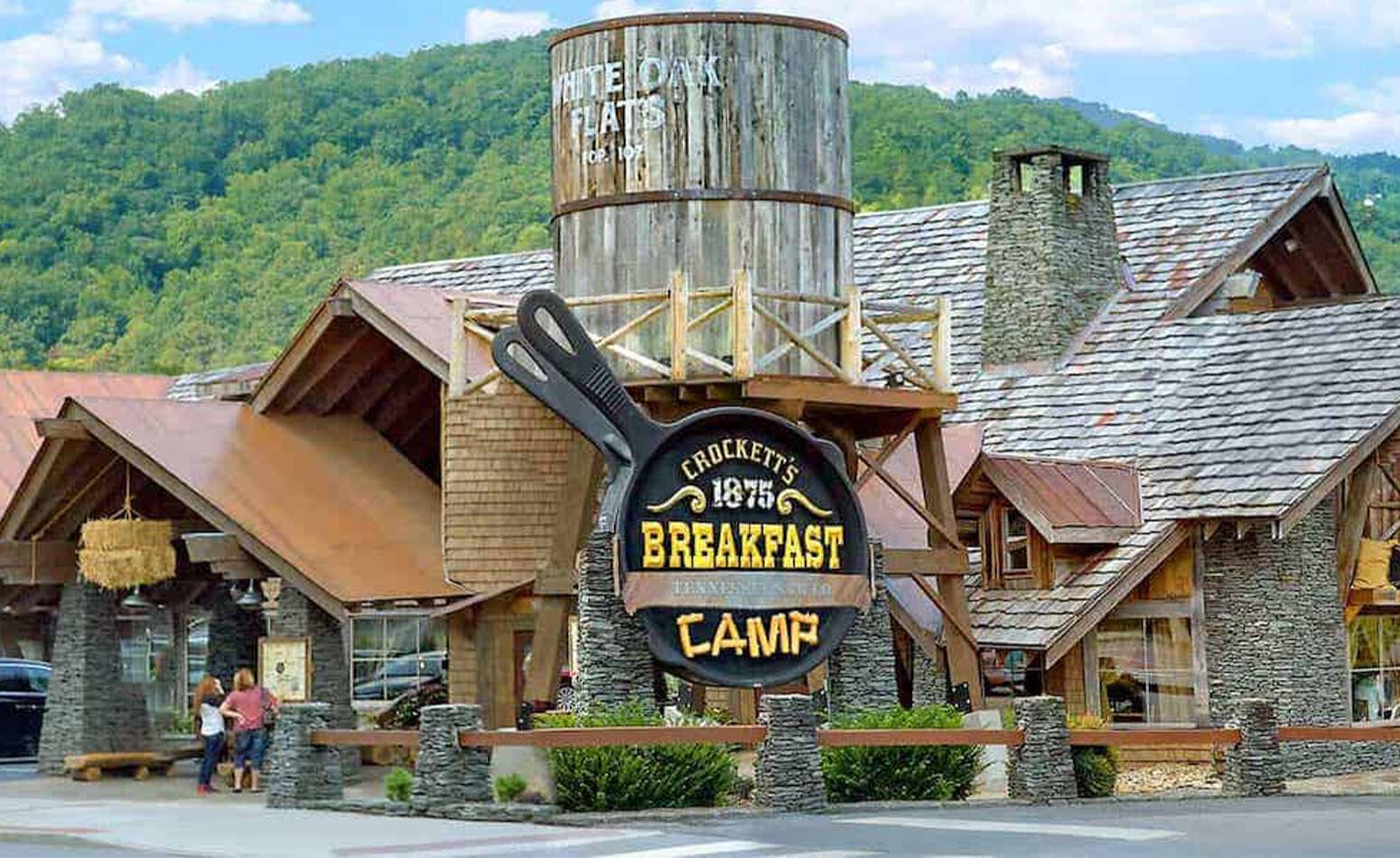
Once you’ve fueled up for the day, head out for a thrilling zipline adventure at Legacy Mountain Ziplines. Soar through the mountain air on seven different ziplines ranging from 500 to 2,500 feet. Every line has spectacular views of the Smoky Mountains. Professional guides will make sure you’re safe and sound while you enjoy the adrenaline rush of zipping above the trees.
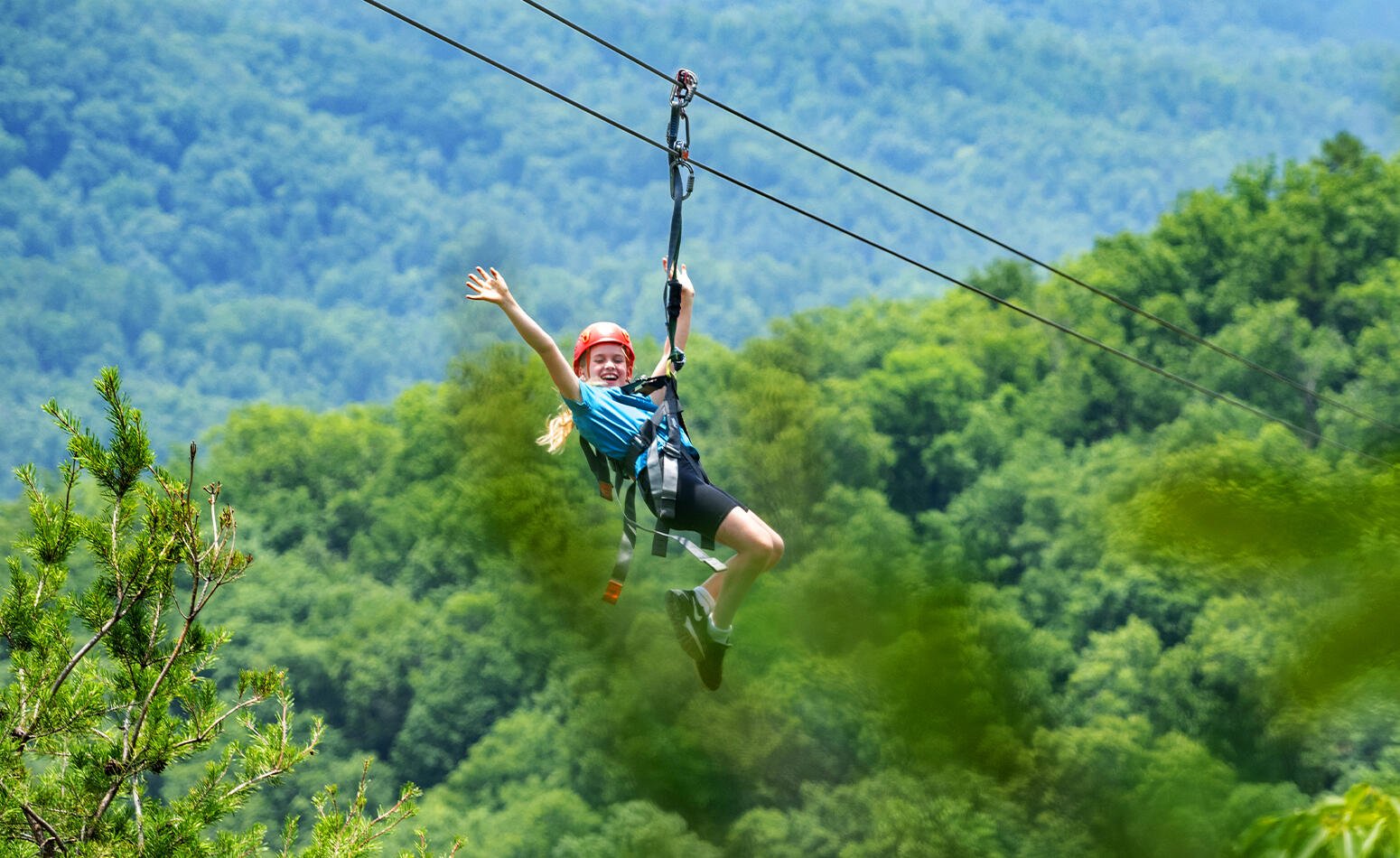
The Wild Plum is a charming tea room that serves homemade soups, sandwiches, and fresh salads. It’s been named one of Tennessee's top 10 restaurants for its rustic charm and seasonal menu items. Don’t forget to order the plum tea, and save room for some homemade desserts.

Spend your afternoon exploring Ripley’s Aquarium of the Smokies, one of the country's top-rated aquariums. Touch gentle stingrays or see playful penguins during their daily feedings. Walk through the underwater tunnel to watch sharks glide overhead; the moving walkway through the shark tunnel is the longest of its kind in North America.

If you have a bit more time, you can take a unique detour to see the Salt and Pepper Shaker Museum. This quirky museum displays over 20,000 sets of salt and pepper shakers from around the world. Each set tells its own story, with sets that reflect different time periods and cultural influences throughout history.

End your first day in Gatlinburg with a taste of Tennessee tradition at one of the local moonshine distilleries. Sugarlands Distilling Company has award-winning moonshine and gifts you can bring to your friends back home. Ole Smoky Moonshine is famous for its variety of moonshine flavors. At Tennessee Shine Co, you can sample several innovative blends. Remember to enjoy responsibly and plan ahead for safe transportation.

On your second day, we suggest taking the time to slow down and enjoy the sights. You'll start with one of Tennessee's most famous attractions before spending time in America's most visited national park. If you’re up for more at the end of your day, we’ve included a suggestion for an entertaining dinner show. Of course, you may prefer to curl up in your hotel after a long day of walking!
Begin the second day of your weekend in Gatlinburg at Tennessee's first specialty pancake house. The Pancake Pantry's scratch-made recipes include everything from traditional buttermilk pancakes to unique creations like Swiss chocolate chip and sweet potato pancakes. You can also choose from a wide variety of crepes and omelets if you prefer a savory breakfast.

Spend your morning and early afternoon at Dollywood, a world-class amusement park and Tennessee’s favorite family vacation destination. You’ll find exciting rides, delicious food, and live musical performances throughout the day. Try their famous cinnamon bread for a snack, or enjoy lunch at one of the park's many restaurants serving Southern comfort food.

You can’t come to Gatlinburg without stopping to experience America's most visited national park. The Great Smoky Mountains National Park is beautiful any time of year, although some access roads may be closed seasonally. Drive the scenic Cades Cove Loop to spot wildlife and historic buildings, or choose from various hiking trails that match your experience level. You can also explore the Smokeys on wheels with a UTV rental Ridge Riders Adventure Rentals.
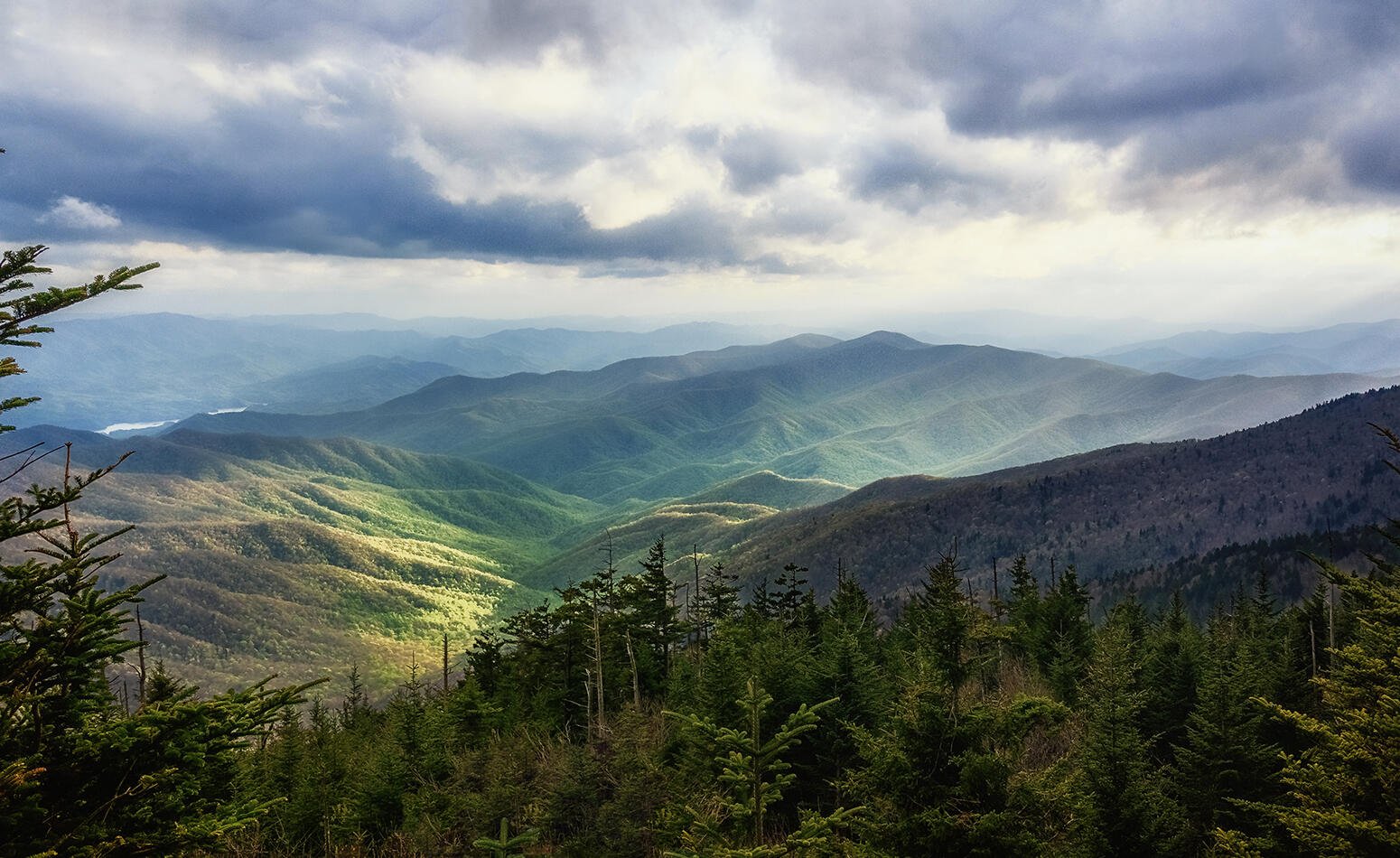
Cap off your evening with this entertaining dinner show in nearby Pigeon Forge. You’ll enjoy Southern comfort food, music, comedy, and acrobatics in this family-friendly production based on the famous feud between the Hatfield and McCoys, called one of the top things to do with kids in Pigeon Forge.

If you’re staying for a long weekend, be sure to spend a day taking in the gorgeous views of the Smoky Mountains from every angle. This is the perfect day to bring your camera along to capture memories of your weekend in Gatlinburg!
Begin your final day at The Old Mill, a historic 200-year-old mill turned into a restaurant. Watch the water wheel turn in Little Pigeon River while enjoying fresh-baked biscuits and grits made from grain ground at the mill. Fill up on classic country breakfast items before you set out on your final day of exploring Gatlinburg.

At Gatlinburg SkyPark, you’ll see panoramic views of the Smokies from the SkyBridge, North America's longest pedestrian suspension bridge. The glass floor panels at the bridge's center add extra excitement to your walk. Enjoy lunch at the SkyCenter after exploring the park.
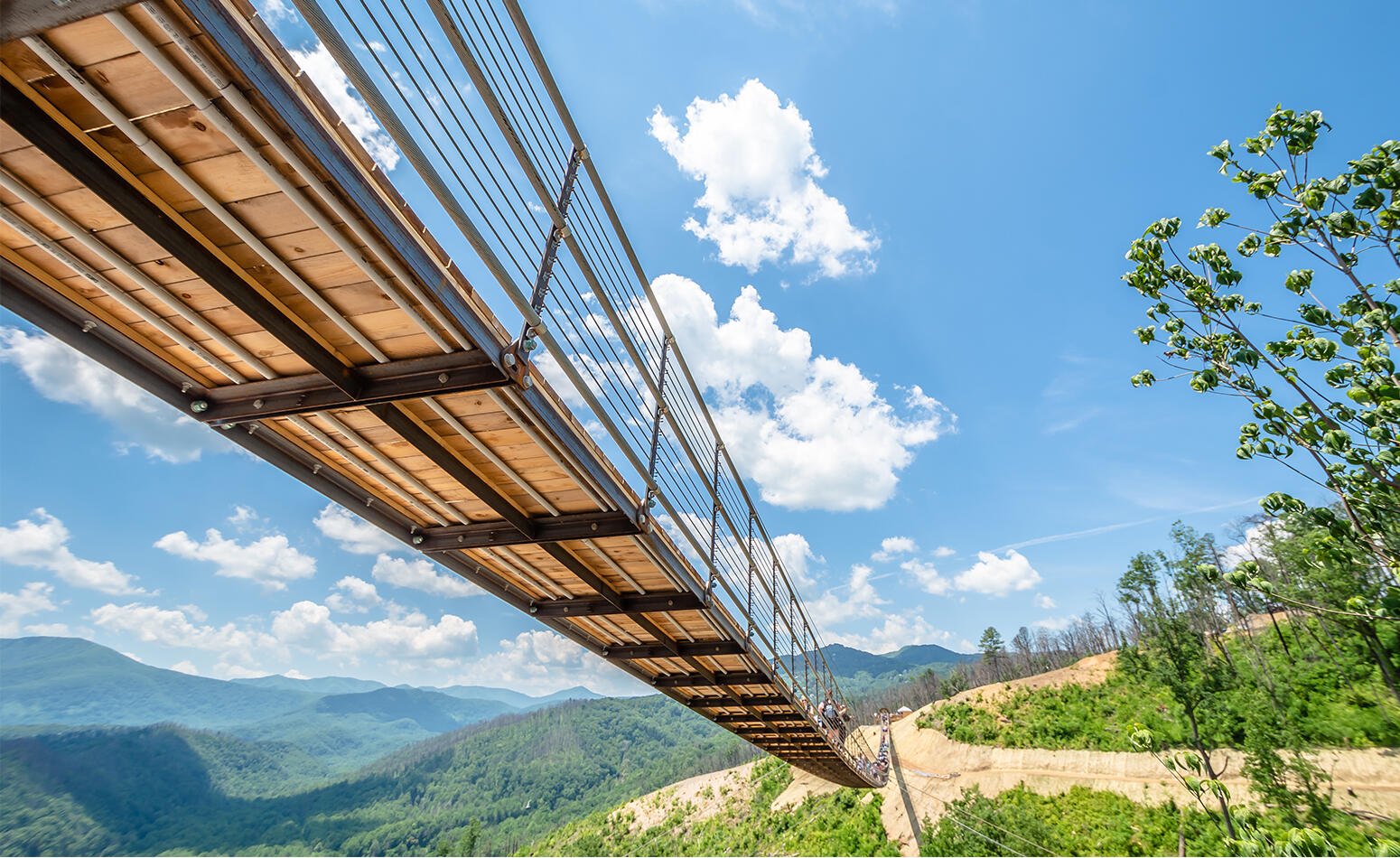
You’ll have an entirely different view of the mountains when you’re racing down them on Ripley’s Mountain Coaster. Twist and turn down the mountainside on this gravity-propelled roller coaster where you control the speed. The track follows the natural mountain terrain for an exciting ride through the forest. Children ages 3-9 must ride with an adult, and children under 3 are not allowed on the carts.

The Island in Pigeon Forge is an entertainment complex full of fun activities to wrap up your stay. Have fun on the rides, shop for souvenirs, and choose from various dining options including Margaritaville, Dick's Last Resort, or Timberwood Grill for the final dinner of your weekend trip to Gatlinburg.

We hope you’ll use this itinerary to discover Smoky Mountain beauty, local cuisine, and exciting attractions during your weekend in Gatlinburg, TN.
Even if you don’t have time for everything, make your trip extra memorable by booking a Legacy Mountain Zipline Adventure. This can’t-miss experience is sure to be one of your favorite memories from your Gatlinburg getaway.
Because the Great Smoky Mountains National Park is open year-round, visitors often wonder, "when is the best time to visit the Smoky Mountains." The good news: there’s no wrong time to plan a trip and visit these majestic mountains! You’ll find gorgeous views and exciting adventures in the Smokies all year long.
The Smoky Mountains and the surrounding area are beautiful during any season, but we’ve created a guide to help you find the best time of year for your unique plans. Some activities are only seasonally available, so it’s important to understand what to expect when planning a visit.
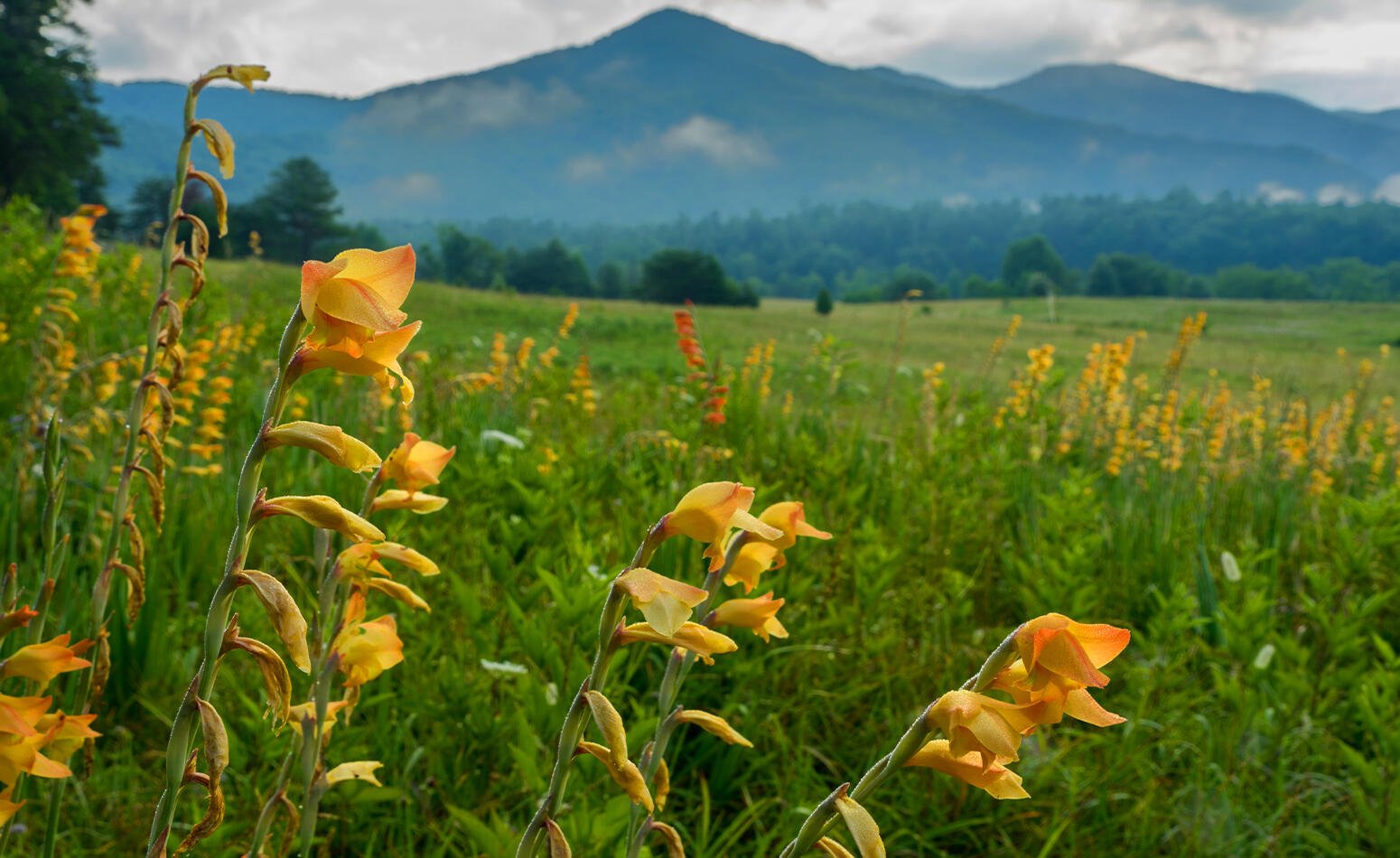
Spring in the Smokies is full of new energy and budding nature. As temperatures warm up, weekend crowds begin to build. On weekdays, visitors will often find peaceful trails and quieter attractions.
Spring weather in the Smokies can be delightfully unpredictable. Visitors may be surprised by late-season snow in March, while days in May often warm to the 60s and 70s. Pack layers and watch the forecast because mountain weather can change rapidly. Rain showers become more frequent as the season progresses, so it’s a smart move to pack waterproof gear.
Trout fishing in the crystal-clear streams of the Smokies is a popular springtime activity. Hiking trails start to reopen as winter ice melts, though some may remain closed through early spring. Be sure to check trail openings ahead of time if you plan to hike at higher elevations.
During the late spring, flowers and trees begin to bloom across the mountains. Nature photographers love spring in the Smokies because of the many varieties of wildflowers in bloom. This is also the time of year that visitors may be able to spot adorable baby animals throughout the park.
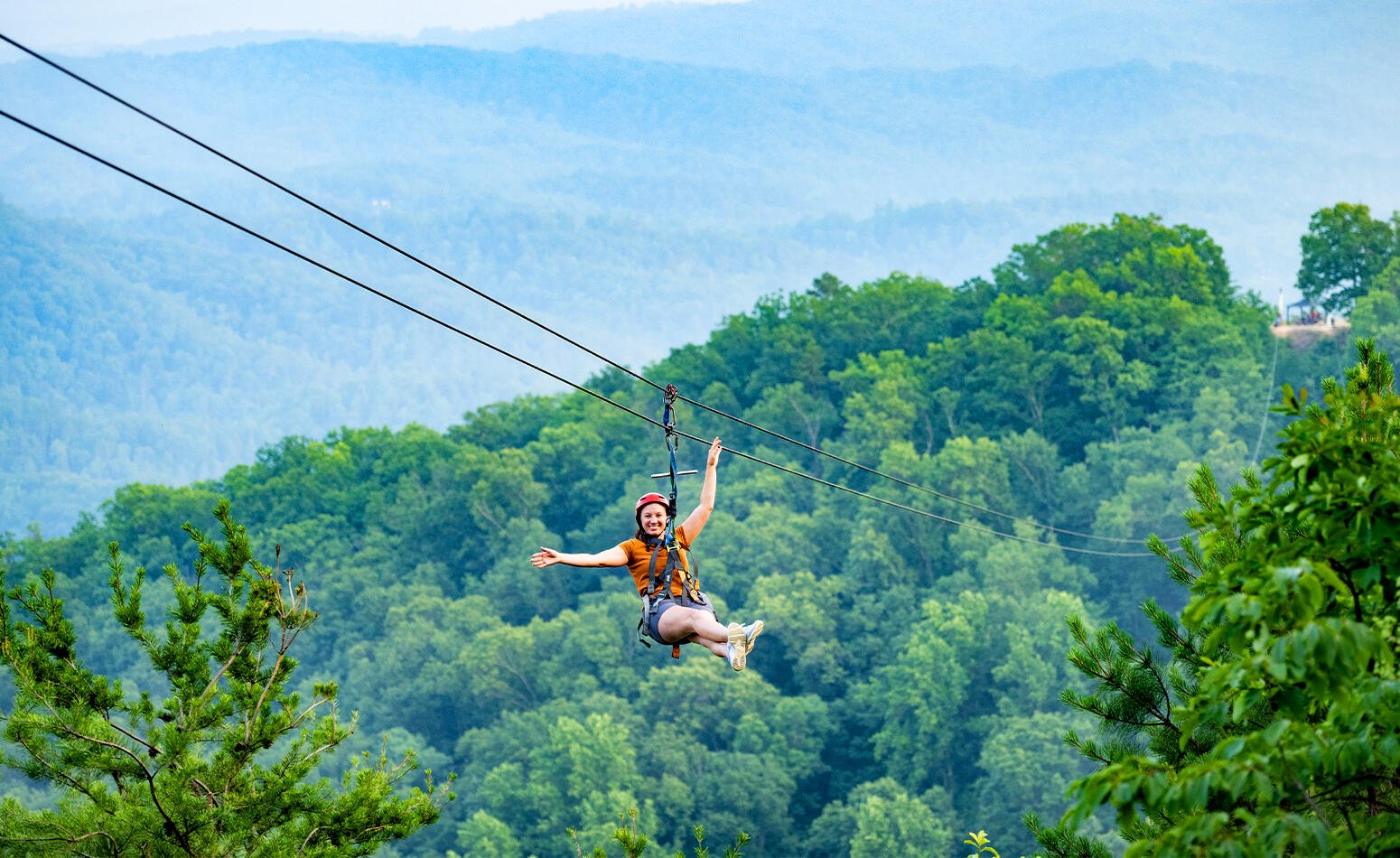
Summer is peak visitor season in the Smokies, with July claiming the title of busiest month. Long, warm days and full access to park activities make summer visits well worth it, despite the crowds.
Daytime temperatures typically range from the 70s to 80s, occasionally reaching the 90s in lower elevations. Afternoon thunderstorms are common and make waterfalls particularly beautiful. Visitors can expect high humidity most days. Morning and evening hours are typically cooler, and the higher elevations don’t get quite as hot.
Warmer temperatures make water-based activities like kayaking, river tubing, and swimming extra appealing. Morning and evening hikes are cooler than going out in the heat of the afternoon. Ziplining is another popular outdoor activity in the summer, and a great way to cool off!
July is black bear mating season, and wildlife activity peaks throughout the summer months. The lush forest canopy provides shade, while mountain laurel and rhododendron add splashes of color to the green of the mountainside. The region's bugs are also at their most active
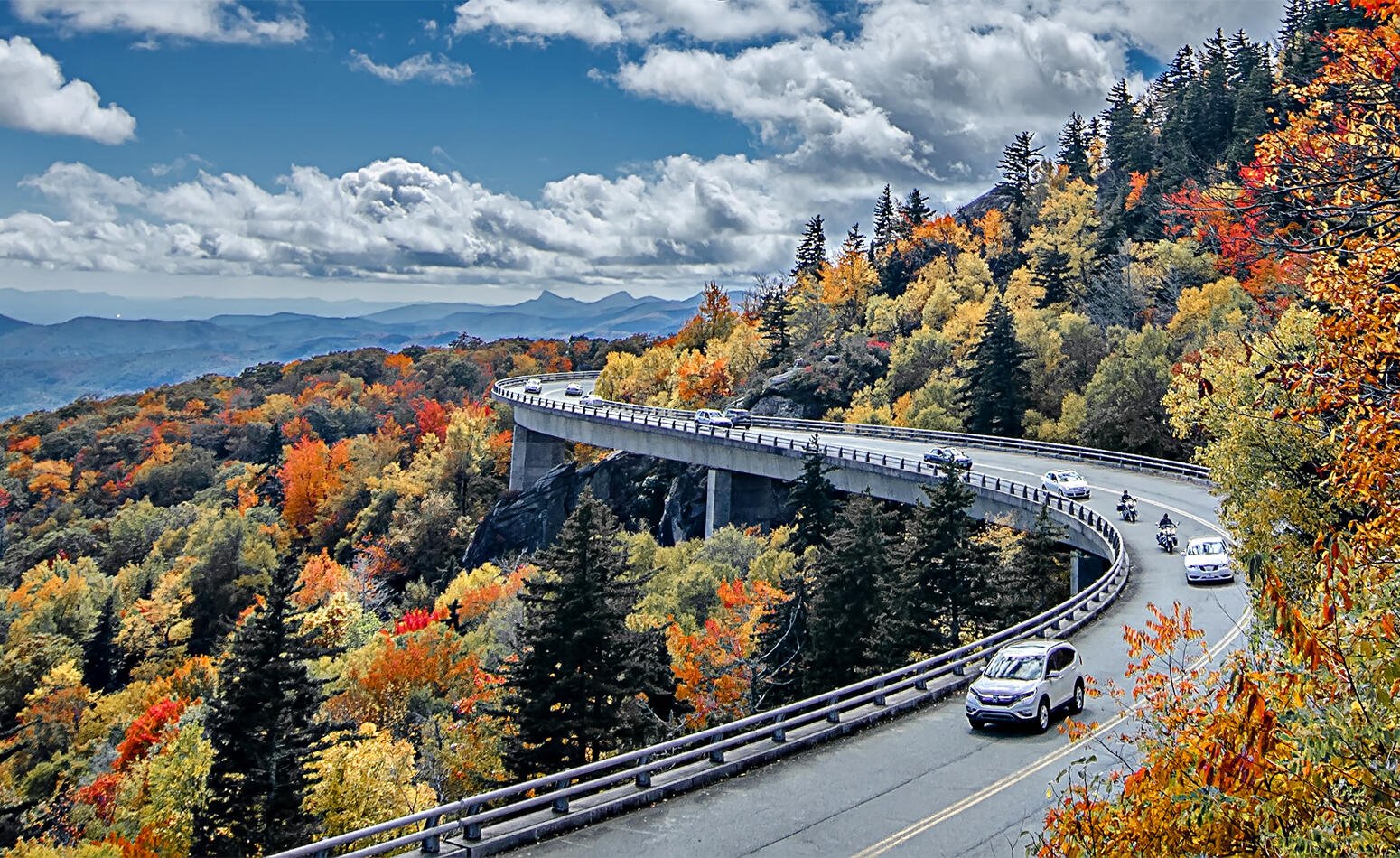
Fall months have the second-highest number of visitors, especially in October when the forest changes color. The comfortable temperatures and clear skies make this season especially popular for hikers and nature photographers. If you're an outdoor enthusiast, the fall may be the best time to visit the Smoky Mountains.
Early fall stays on the warm side with temperatures in the 70s and 80s. By November, high temperatures have dropped to the 60s and lows will be near freezing. There is typically less rainfall in the autumn months than any other time of year. The clear skies and changing colors make the views from higher elevations particularly stunning.
Scenic drives are popular in the fall, especially for visitors looking for the best views of changing leaves. Local harvest festivals celebrate the season with live music, hand-made crafts, and delicious foods. Outdoor activities remain popular throughout autumn months, especially hiking and trail biking.
Nature Highlights
The Smoky Mountains are considered one of the best places to see the leaves change in the United States. The famous color display typically begins at higher elevations in late September, gradually working its way down the mountainsides throughout November. You might hear the bugling of elk during mating season. It’s also a busy season for bears and other hibernating animals as they actively prepare for winter.
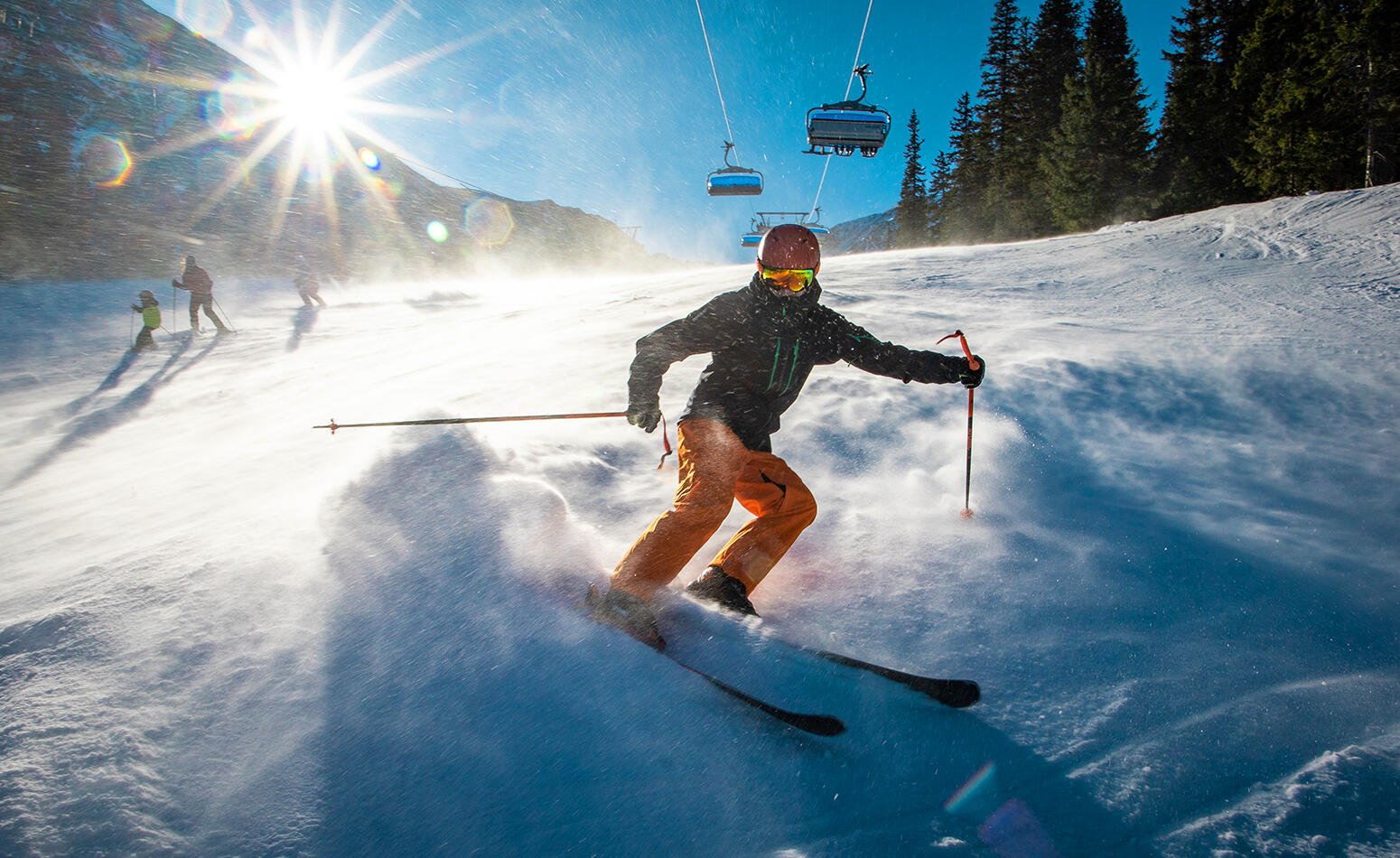
Experience the mountains at their most peaceful during winter, when the fewest visitors are around. Fewer people means you’ll find more unobstructed views and quieter activities.
Winter in the Smokies is fairly moderate in the valleys, with more dramatic weather possible higher in the mountains.
Lower elevations often reach 50 degrees or higher during the day, occasionally even climbing to the 70s. Snow is more frequent at higher elevations. The most snow falls in January and February, and higher elevations can occasionally get up to two feet during storms. Temperatures typically drop below freezing across all elevations overnight.
Nearby Gatlinburg and Pigeon Forge host special holiday events with plenty of festive displays and twinkling lights. Winter sports enthusiasts enjoy skiing and snowboarding at Ober Mountain. Visitors who prefer indoor winter activities can rent cozy cabins and spend their evenings by the fire. If you plan to explore the mountains in the winter, be sure to check ahead for road closures.
Spotting wildlife in the forest is easier between the bare branches of the trees. Nature photographers appreciate winter's clear air quality and visibility. After a snowfall, the contrast between white-covered peaks and deep green pines creates particularly stunning views.
The Great Smoky Mountains are special in every season. Spring's wildflower displays, summer's outdoor adventures, fall's spectacular colors, and winter's peaceful solitude make every season a good time to visit the Smoky Mountains. The best time to visit depends entirely on what you hope to experience and what suits your individual needs.
For a unique perspective of the Smokies in any season, join us at Legacy Mountain Ziplines. Book your premium zipline adventure today and soar above the Smokies on our 7-line course!